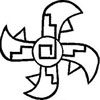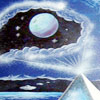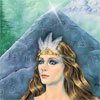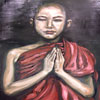I Remember Lemuria
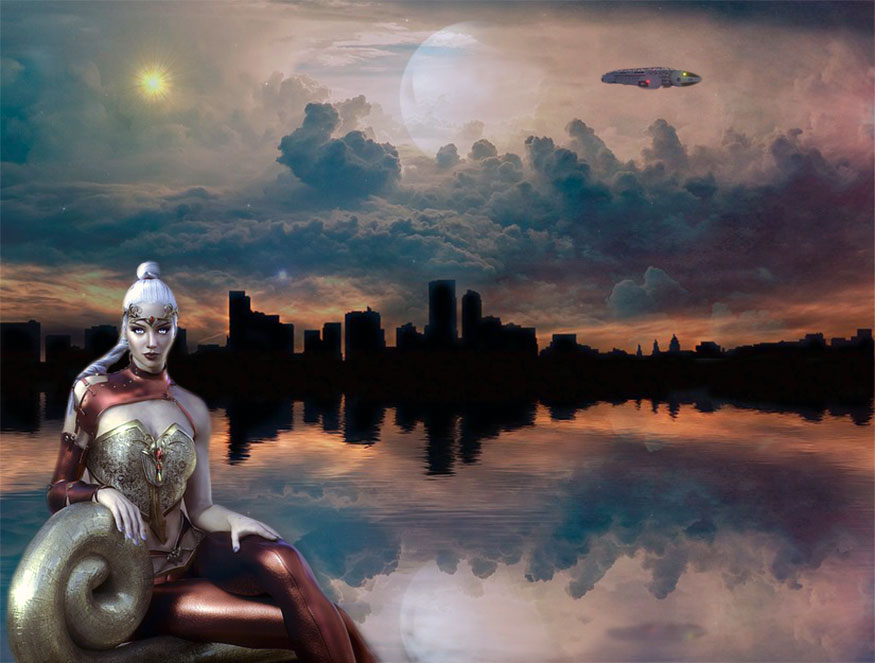
“For the past twenty-five or thirty years we have had a great many of what are called fantastic or amazing stories printed in magazines and books. Now by far the greatest part of them are inspired by writers who, in their sleep state or other ways, actually contacted people who lived in these other planets. The stories were too fantastic for the normal person to visualize, yet it is quite conceivable that such places and things could exist for that is the Infinite Nature of God.” ~ Ernest L. Norman
Foreword:
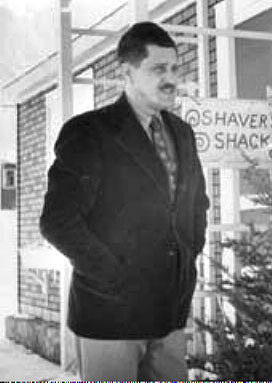 Perhaps my parents never realized the puns that would be made on my name when they christened me Richard Sharpe Shaver. Under ordinary circumstances the puns would have been of little consequence, but because of the amazing fact of my amazing memory of the life of another person, long dead, it has been incredibly hard for me to speak convincingly and to make people believe in me. Invariably I get that oh-so-funny remark, “Sharp-shaver, eh? A regular cut-up, eh, kid!” accompanied by a sly dig in the ribs and a very stupid, “Get it?” How can a man get a serious audience after that?
Perhaps my parents never realized the puns that would be made on my name when they christened me Richard Sharpe Shaver. Under ordinary circumstances the puns would have been of little consequence, but because of the amazing fact of my amazing memory of the life of another person, long dead, it has been incredibly hard for me to speak convincingly and to make people believe in me. Invariably I get that oh-so-funny remark, “Sharp-shaver, eh? A regular cut-up, eh, kid!” accompanied by a sly dig in the ribs and a very stupid, “Get it?” How can a man get a serious audience after that?
And yet, there it is for all who wish—to pun and pun again. If I achieve nothing else at least you may laugh, and to laugh is to be physically and mentally healthy. For those of you who will read on and carefully weigh what I am about to tell you I am convinced there will be no thought of puns. Instead, when you consider the real truths behind what I say—and even better, experiment and study to corroborate them—it seems to me to be inevitable that you will forget that I am Richard Sharpe Shaver, and instead, am what science chooses to very vaguely define as the racial memory receptacle of a man (or should I say a being?) named Mutan Mion, who lived many thousands of years ago in Sub Atlan, one of the great cities of ancient Lemuria!
I myself cannot explain it. I know only that I remember Lemuria! Remember it with a faithfulness that I accept with the absolute conviction of a fanatic. And yet, I am not a fanatic; I am a simple man, a worker in metal, employed in a steel mill in Pennsylvania. I am as normal as any of you who read this and gifted with much less imagination than most of you!
What I tell you is not fiction! How can I impress that on you as forcibly as I feel it must be impressed? But then. what good to impress it upon those who will crack wise about me being a “sharp-shaver”? I can only hope that when I have told the story of Mutan Mion as I remember it you will believe—not because I sound convincing or tell my story in a convincing manner, but because you will see the truth in what I say, and will realize, as you must, that many of the things I tell you are not a matter of present day scientific knowledge and yet are true!
I fervently hope that such great minds as Einstein, Carrel, and the late Crile check the things that I remember. I am no mathematician; I am no scientist. I have studied all the scientific books I can get—only to become more and more convinced that I remember true things. But surely someone can definitely say that I am wrong or that I am right, especially in such things as the true nature of gravity, or matter, of light, of the cause of age and many other things that the memory of Mutan Mion has expressed to me so definitely as to be conviction itself.
I intend to put down these things, and I invite—challenge!—any of you to work on them; to prove or disprove, as you like. Whatever your goal, I do not care. I care only that you believe me or disbelieve me with enough fervor to do some real work on those things I will propound. The final result may well stagger the science of the world.
I want to thank editor Ray Palmer, in whose “fiction” magazine, Amazing Stories, the stories in this book were first published, for his open mind and for the way he has received the things I have told him in addition to what I have written in this story of Mutan Mion of ancient Lemuria. It began when he published my ancient alphabet in “Discussions” and requested the readers to carry out checks of their own. I myself did not realize the extent of the alphabetic (more properly phonetic) language. But surely there must be tremendous significance in the fact that the alphabet fits into every language to which it has been applied, to the amazing percentage of 75% in the German to 94% in the ancient Egyptian! Even in Chinese and Japanese it ranked consistent nine out of ten times.
To me it is tragic that the only way I can tell my story is in the guise of fiction. And yet, I am thankful for the opportunity to do even this; and to editor Ray Palmer I express my unbounded gratitude. I know that if even a few of you go to the lengths he has gone to check many of the things I remember, a beginning will have been made to something, the ending of which (if ending there is) awes me beyond my poor power to express my feelings.
—RICHARD S. SHAVER.
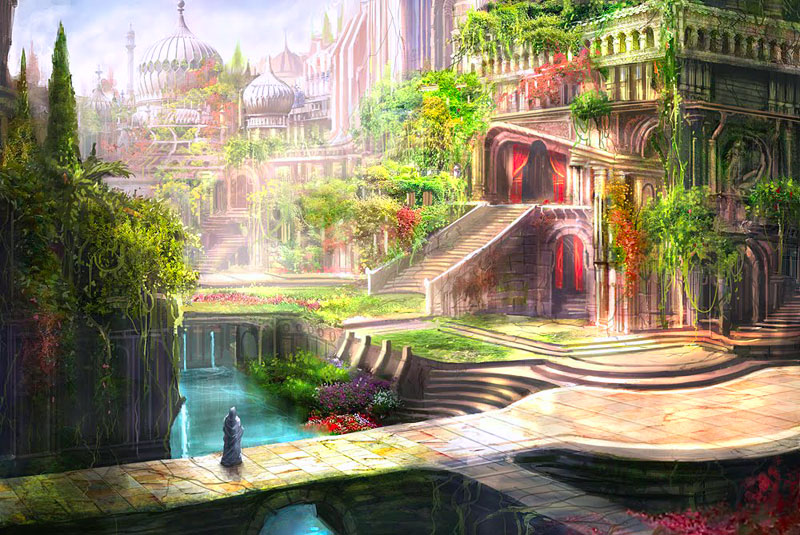 I
I
REMEMBER
LEMURIA
Thought Records from the
Past Tell the Ancient
Story of Lemuria which
Some Call Mu or Pan
CHAPTER I
City of the Titans
I was working in the studio of Artan Gro when I heard a great laugh behind me. If ever there was derision in a laugh, there was derision in this one. I flung down my gaudy brushes and my palette and turned about in a rage—to find the master himself, his red cave of a mouth wide open in his black beard. I cooled my temper with an effort; for great indeed is Artan Gro, master artist of Sub Atlan.
“I am sorry, Mutan Mion,” he gasped, “but I can’t control my laughter. No one ever has conceived, much less executed, anything worse than what you have put upon canvas! What do you call it, ‘Proteus in a Convulsive Nightmare’?”
But Artan Gro could control himself, I was sure. It is one of the things I have learned of the really great in the arts; they make no pretenses. He was laughing because he wanted to tell me frankly what he thought of my ability as an artist. It is bad enough when your friends mock your work (and they had), but when the master is convulsed with laughter it is high time to wake up to the truth.
“It is true, great Artan Gro,” I said humbly. “I want to paint but I cannot. I haven’t the ability.”
Artan Gro’s expression softened. He smiled, and as he smiled it was as though he had turned on the sunlight.
“Go,” he said, “go; to the deeper caverns at Mu’s center. Once there study science; learn to mix the potions that give the brain greater awareness, a better rate of growth.” He patted my shoulder and added a last bit of advice. “Once you have mixed the potions, take them. Drink them—and grow!” He passed on, still chuckling.
Why is the truth always so brutal? Or does it just seem brutal when it comes from those wiser than you? I slunk from the studio; but I had already determined to take his advice. I would go to Tean City, at Mu’s center. I would go to the science schools of the Titans.
Never before had I considered leaving Sub Atlan, my birthplace, or as I should express it, my growth place, for I am a culture man, a product of the laboratories. In fact, I remember no other place on Mu, although it is a fact that during the process of my development to culture manhood,
I roamed the culture forests of Atlantis, 2 which is the name for Surface Atlan. Sub Atlan is just below Atlantis, while Tean City is located at the center of Mu, at a great depth below Sub Atlan. The walls of the great cavern in which Tean City is located are hardened to untellable strength by treatment with ray-flows which feed its growth until it is of great density. There are many other cities which grew through the centuries to vast size, but none so great as Tean City. Some are abandoned, but all are indestructible; their cavern walls too dense to penetrate or to collapse.
Since Tean City is located near the center of Mother Mu, gravity neutralizes itself by opposition. It is very comfortable. Many of the Titans live there, and in fact, it is almost a Titan city. There also are the mighty ones, the Elders of the Atlan race’s government. Huge they are, like great trees, many centuries old and still growing. I had long wished to see them, and now that I had decided to go, the thrill was greater than any I had ever experienced, I was going down into the city of many wonders!
Out on the street I took one of the many vehicles that are provided for travel about the city. These vehicles, their weight reduced by a gravity deflection device, are powered by motors whose energy is derived from a gravity focusing magnetic field, by which one side of a flywheel becomes much heavier than the other. This is accomplished by bending gravity fall 3 in the same way that a lens bends a light ray.
The topless 4 buildings of Sub Atlan fled by me; and soon I neared the squat entrance to the shafts that fell from Sub Atlan to Center Mu, to Tean City, home of the Titans. 5 I knew that swift elevators dropped down these shafts; but I had never traveled in one of them.
Because I knew the control-man of one of the elevators, having talked with him often of Tean City and the wonders he had seen in it, I went to his shaft for my descent. He was glad to see me, and very much surprised to learn that I was going to Tean City.
“You will never regret it!” he declared.
The car dropped sickeningly, so swiftly that a great fear grew in me that I would be crushed by deceleration when we finally stopped. In panic I watched an indicator’s two hands move slowly toward each other as though to cover its face in shame. Then, with little sensation, the car stopped. Here at the center of Mu I had become nearly weightless and the ceasing of even such swift motion did not have ill effects upon my weightless body. I knew that I would not have that fear again.
Two fat Atlans stepped out of the car ahead of me, sighing with relief at their renewed weightlessness, which they had obviously been anticipating. As I was about to follow them from the car, the control-man drew me aside.
“Fear rides the ways down here,” he whispered, his sharp-pointed, cat-like ears quivering an alert. “Fear is a smell down here that is ever in the nose—a bad smell, too. Try to figure it out while you are down here; and tell me, too, if you get an answer.”
I did not understand what he meant, but I promised anyway. The smell of fear, in Tean City?
Immediately I was immersed in the sensually shocking appeal of a variform crowd, mostly at this hour, a shopping rush of female variforms. While there were many of my own type, and of the elevator control-man’s type, there were a greater number of creatures of every shape the mind could grasp and some that it could not. All were citizens; all were animate and intelligent—hybrids of every race that space crossing had ever brought into contact, from planets whose very names are now lost in time. The technicons may have been wrong in the opinion of some when they developed variform breeding; but they have certainly given life variety. I had never seen so many variforms 6 before.
At a corner of the vastly vaulted way where many rollat platforms 7 crossed and recrossed each other, I stepped to a telescreen and dialed the student center. The image of a tremendous six-armed Sybyl female filled the screen and the electrically augmented body appeal of the mighty life within her seized the youth in me and wrung it as no embrace from lesser female ever had.
“And what” her voice shook me as a leaf in an organ pipe “might a pale and puny male like you want in Tean City? You look as if you never had enough to eat, as if love had passed you by. Did you come down here because no one wanted you elsewhere?”
I grinned self-consciously back at her image, my voice a feeble piping in comparison to hers.
“I have come to learn something beside drawing lines around dreams. I am a painter from the subsurface who has decided that knowledge of actual growth is more important than the false growth of an untrue image upon a canvas.” I wondered what the master would have said to hear me.
“You are right,” she boomed back, her six arms engaged in complex and mysterious movements, picking up and laying down instruments and tools in bewildering rapidity, her attention elsewhere yet enough remaining on me to hold me bound in an attraction as strong as a towing cable. She was a forty foot Titan, her age unknowable. As I thought upon this and tried not to think of the immense beauty and life force of her, I suddenly realized she was hiding fear. I have a peculiar faculty for sensing hidden emotions. That bluff greeting had been a hidden wish to drive me from some danger. But I did not speak of it, for I read that caution in her; a very strong mental flow that fairly screamed DON’T.
This kind of fear was a wonder and a new thing to me, for danger was a thing long banished from our life. Then she spoke, reluctantly it seemed.
“Go to the center of the Hall of Symbols. There you can ask a student or an instructor who will tell you all you need to know.”
The grip of the woman life in her left my mind and she was gone from my vision. As I turned from the telescreen my mind insisted on visualizing that six-armed embrace and its probable effect upon a man in love. I shivered in spite of the warmth, but not from fear. The blood of the Titans was alive, I thought; strangely and wonderfully alive!
I stepped into a rollat at the curb, inspected the directory, then inserted a coin and dialed the number of the building that housed the Hall of Symbols. I leaned back while the automatic drive of the rollat directed the car through the speeding traffic, its electric eye more efficient than my own.
Yes, much more efficient than my own at the moment, which were wandering over the figure of a variform female on the walk whose upper part was the perfect torso of a woman and whose lower part was a sinuously gliding thirty feet of brilliantly mottled snake. You could never have escaped her embrace of your own will once she had wrapped those life-generating coils around you!
I thought upon it. The gen of these variforms was certainly more vital; possibly because the Titan technicons Who lived here kept the people healthier. Perhaps the hybrids were naturally more fecund of micro-spore. It had indeed been a day of brainstorms, I mused, when some old technicon had realized that not only would a strong integrative field with a rich exd 8 supply cause all matter to grow at an increased rate, but would also cause even the most dissimilar life-gens to unite. It has been the realization that had resulted in various form life. Most of the crosses by this method had resulted in an increased strength and fertility. They now were more numerous than four-limbed men, and often superior in mental ability.
Automatically my mind associated the embrace of the snake woman with the six arms of the giant Sybyl of Info; and I decided that I understood why Artan Gro had driven me here with his scorn. If I didn’t learn about life here I never would anywhere. That had been what he had reasoned.
Soon I was striding between the pillaring fangs of the great beast’s mouth that was the door of the Hall of Symbols where the school ways converged. About was the bustle attendant to any rollat way station; bearers rushing; travelers gazing about lost in wonder at the vaulting glitter of sculptured pillars and painted walls, done by men of a calibre whose work ro 9 like myself cannot grasp entirely.
Paintings and sculpture here hammered into the brain a message of the richness of life that immense mutual effort can give the lift unit, the pro. This richness of life was pictured in a terrible clash with evil, its opposite. 10 The hot fecundity of life and health growth was a sensuous blow upon the eyes, the soul leaped to take a hand and make life yet more worthwhile. I could not cease gazing at the leaping vault of pictured busy figures whose movements culminated in that offer to the spirit of man to join them in moulding life to a fit shape.
My rapt study of the paintings was interrupted by the sound of a pair of hooves that clicked daintily to a stop beside me. I glanced at the newcomer, who had stopped to stare up at the paintings also in that curious way that people have when they see another craning his neck—and my glance became a stare.
What was the use of aspiring to be an artist, my reason said, if those great masters who had placed that mighty picture book on the vaulting walls above were so easily outdone by the life force itself!
She was but a girl, younger than myself, but what a girl! Her body was encased in a transparent glitter; her skin a rosy pale purple; her legs, mottled with white, ended in a pair of cloven hooves. And as my brain struggled to grasp her colorful young perfection—she wagged her tail!
It was all too much. Speculating about the life-generating force possible in the variform creatures was one thing; but having it materialize beside you was another thing entirely. Such a beautiful tail it was. Of the softest, most beautiful fur.
“What were you staring at?” she asked. “The paintings?”
I stuttered, then answered. “The paintings . . . I guess . . . yes, the paintings. I’m a . . . painter . . . was a painter . . .” I gave up. I couldn’t talk, I had to look.
“They are marvelous, aren’t they,” she declared enthusiastically. “I always look at them when I come down to the school. I am studying medicine. Now take that painting up there—”
On her arm and breast I saw the medical school insignia; a man’s figure struggling with a great snake, disease. 11 It took brains to study medicine. This exquisite young thing, so full of gen force, so powerfully attractive, was smart too. And almost instantly she proved herself to be extremely friendly and companionable. She went on talking, describing, theorizing in a gush of amiable conversation that left me dizzy, gasping, and admiringly breathless. She told me everything about the paintings, the statues.
And before I realized it, we were walking on together. She was full of all sorts of information, and it seemed she had taken it upon herself to be my guide, to teach me the meaning of everything we saw. Her cheerful chatter soon told me all about herself, her studies, the schools, the great doors that led to each one from the central gathering place of the school rollat ways.
The Hall was justly famous for these doors. Before us now was the door to the medical school, formed of pillaring figures struggling with the coils of snakes. Next to it was the marine school door, formed of a crab whose huge claws met to form the arch. A planetron, a pendulum device to tell of the nearness of bodies in space, formed the entrance to the school of space navigation. All the ages of science of immortal growth had combined here in the symbols that formed the many doors.
Footnotes:
2 According to Plato, Atlantis was a continent located some four hundred miles west of the Pillars of Hercules (Gibraltar). In the Timaeus, he describes it as an island larger than Asia Minor combined with Libya. Beyond it, he says, were an archipelago of lesser islands. Atlantis had been a powerful kingdom nine thousand years before the birth of Solon (from whom Plato heard of Atlantis reputedly as told to Solon by Egyptian priests), and its armies had overrun the Mediterranean lands, when Athens alone had resisted. (It has been a point of difference between students as to whether Plato referred to the “Mediterranean lands” as lands now inundated by the Mediterranean Sea, or the lands surrounding the sea.) Finally the sea overwhelmed Atlantis and shoals marked the spot. In the Critias Plato gives a history of the commonwealth of Atlantis.
There are many other traditions of lands located west of Gibraltar. The Greek Isles of the Blest or Fortunate Isles; the Welsh Avalon; the Portuguese Antilia or Isle of Seven Cities; and St. Brendan’s island. All except Avalon were marked on maps of the 14th and 15th centuries.
The legends of the Sargasso Sea are said to have sprung from encounters with the sea of weeds which periodically grew over the shallowly sunken continent.—Ed.
3 The reader will note the curious use of the word “fall” in connection with gravity. Later in the story, the author elaborates on the subject of gravity in a very amazing manner, propounding a theory which your editor has examined in detail and by which he has been utterly confounded. This glib “focusing” and “deflecting” of gravity your editor cautions you to accept in the literal sense until Mu-tan Mion’s story gives us more on the subject of gravity.—Ed.
4 Curious as to the literal meaning of the word “topless” we wrote to Mr. Shaver for a better description of the buildings of Sub Atlan. He revealed that (as Mutan Mion’s memory told him) they were topless in the sense that they were roofless. Sub Atlan is located in one of the giant near-surface caverns that underlie Surface Atlan, or Atlantis, which is mostly forest with scattered large buildings. Since the elements are not a factor, almost all buildings are constructed without roofs to admit a maximum of light. Sub Atlan must have presented a strange appearance, for no two buildings were architecturally alike; some of them huge spheres, or multi-sided geometric shapes, tall spires, or merely rambling structures of no apparent intentional design. The reason for this was to provide variety p. 10 to interest the eye, which would otherwise be jaded by constant contemplation of the unending sameness of gray cavern walls and roof of stone.—Ed.
5 When asked to describe the Titans Mr. Shaver sent us the following notation, which is perhaps the oddest of all his communications. When queried about its oddity, he merely replied that he had “answered your question” and gave no further explanation. We quote:
“Our great race, the Atlans, together with the Titans, our allies and often our fellow citizens, swarm through all known space and watch ever for the birth of new suns. Then, too, there are the Nortans; but the Nor-men shun all suns and can only be found where the sun rays shine not.
“When our Atlan sciencons hear of or see a new sun born, our ships flash swiftly through the void, to test the rays for poisonous emanations. When they find clean heat from a surface shell of pure carbon, fast upon their trail come the first great colonization ships. For our race is fecund beyond imagination and there is little death from any cause.”
Obviously this is nothing from the “racial” memory of Mutan Mion, but seemingly something from an Atlan himself! Here and there, through Mr. Shaver’s correspondence with the editors, such departures from the identity of Mutan Mion occur, and we can only suggest that Mr. Shaver’s racial memory contacts extend not only to the culture man, but to other beings as well. Mr. Shaver himself cannot explain, and in many instances, is unaware, that such extensions exist.
The reader will here, again, note several inexplicable references. such as “poisonous emanations” and “a surface shell of pure carbon.” Later in the story Mutan Mion tells of these things in great detail, and in them gives still another of the amazing scientific theories that stagger the imagination.—Ed.
6 Obviously variforms are not natives of other planets, but hybrids developed from many interplanetary life forms mated with Titans and Atlans by deliberate applications of mutative rays in the laboratories of Mu’s technicons. It is extremely interesting to note that all have the status of citizens.—Ed.
7 Moving connected vehicles on the ways and walks which carried the bulk of pedestrian travel.—Ed.
8 Exd is Atlan for ex-disintegrance or energy ash. It was the principal content of the beneficial vibrants. It is the space dust from which all matter grows into being. Mutan Mion amplifies the exd theory later on in the story.—Ed.
9 Here again we had to appeal to Mr. Shaver for amplification. We certainly got it, and along with it some amazing thoughts. Ro (he says) is a thing of simple repetitive life pattern easy to understand and control. To ro you is to make you do things against your will. A large generator of thought impulse can be set up to ro a whole group of people. Row the boat is modern and the meaning has become physical force and not mental force. Ro the people was an ancient method of government. Romantic was the name of such a government. Ro-man-tic (science of man life patterning by control). It is the same concept as used by some scientists when they say “hypnotically conditioned.” It is p. 15 not necessarily an evil government method, but is one that was necessary. Any person is ro who is weaker than the mental impulses about him. Men are ro today because they are not self-determining, though they think they are. We are parts of a huge juggernaut, and we are ro in consequence. The determining forces that make our thought what it is are from outside when we are ro, from inside when we are men or gods.—Ed.
10 This is indeed a strange comparison. Evil is the opposite of live, the inference being that to be evil is to die. Oddly (or significantly?) evil is live spelled backward.—Ed.
11 This insignia lives today in the legend of Apollo! According to the Greeks, Apollo was a son of Zeus himself. Disease is typified in the legend by the python, which Apollo killed. Etymologically his name signifies one who “drives away disease.” Roscher’s derivation names him as the “sun god.” Using Mr. Shaver’s ancient language, he is “authority, energizer, power source of man’s growth.” This is startling when we discover, upon studying the legends of Apollo, that he was variously called god of prophecy; god of agriculture; ruler of seasons; keeper of flocks; rearer of boys; sponsor of gymnastics; the helper; healer and seer; averter of evil; god of song and music; leader of the muses; embarker and disembarker; god of streets and ways; one who stands before the house (as protector from violence and disease); originator and protector of civil order; founder of cities and legislation. Apollo, says Mutan Mion, was a son of one of the Titans of Mu!—Ed.
Posted in Reincarnation, True History of Manwith comments disabled.


